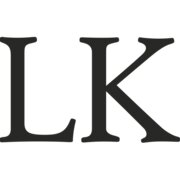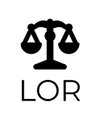Best Nursing Home Abuse Lawyers in Dublin
Share your needs with us, get contacted by law firms.
Free. Takes 2 min.
List of the best lawyers in Dublin, Ireland
About Nursing Home Abuse Law in Dublin, Ireland
Nursing home abuse refers to any form of mistreatment that harms elderly residents in care facilities. This can include physical abuse, emotional abuse, sexual abuse, financial exploitation, and neglect. In Dublin, Ireland, laws are in place to protect the elderly from such abuses and to ensure their well-being in nursing homes. These laws aim to hold caregivers and institutions accountable for the treatment of their residents.
Why You May Need a Lawyer
Engaging a lawyer can be vital in several situations related to nursing home abuse:
- If you suspect abuse or neglect of a loved one in a nursing home, it's essential to consult a lawyer to understand your legal options.
- When the nursing home or staff denies allegations or refuses to cooperate with investigations.
- If you need to gather evidence to support your case, a lawyer can help navigate legal procedures.
- Cases where the nursing home threatens eviction or shows signs of financial exploitation.
- To seek compensation for any damages suffered by the elder due to abuse.
- If regulatory bodies, like the Health Information and Quality Authority (HIQA), are not taking adequate action to protect the resident.
Local Laws Overview
Key aspects of local laws relevant to nursing home abuse in Dublin, Ireland include:
- The Health Act 2007, which provides the legislative framework for quality standards in health and personal social services, including nursing homes.
- Regulations enforced by the Health Information and Quality Authority (HIQA), which monitors and inspects nursing homes to ensure compliance.
- Elder abuse law provisions under the Office of the Ombudsman, which investigates complaints about public bodies including nursing homes.
- The Civil Liability Act 1961, which may be relevant for pursuing compensation claims.
- Guardianship regulations under the Assisted Decision-Making (Capacity) Act 2015, protecting the rights of individuals who may lack decision-making capacity.
Frequently Asked Questions
What constitutes nursing home abuse?
Nursing home abuse includes physical harm, emotional distress, sexual misconduct, financial exploitation, and neglect of basic needs.
How can I recognize signs of nursing home abuse?
Warning signs include unexplained injuries, sudden changes in behavior, poor hygiene, weight loss, and financial discrepancies.
What should I do if I suspect nursing home abuse?
Report your concerns to the nursing home management, contact HIQA, and consult a lawyer for legal guidance.
Can I move my loved one out of the nursing home if I suspect abuse?
Yes, you can relocate your loved one; however, consult a lawyer to ensure you follow the right procedures and preserve any evidence of abuse.
What legal actions can I take against a nursing home for abuse?
You can file a complaint with regulatory bodies, pursue civil litigation for damages, and, in severe cases, seek criminal charges against the abusers.
Who is liable for nursing home abuse?
The liable parties can include individual caregivers, the nursing home administration, and the facility owners.
How long does it take to resolve a nursing home abuse case?
Resolution time varies; it can take months to years, depending on the complexity of the case and legal processes involved.
Can I receive compensation for nursing home abuse?
Yes, you may be entitled to compensation for medical expenses, pain and suffering, and other related damages.
What kind of evidence is needed in a nursing home abuse case?
Evidence may include medical records, witness testimonies, photographs of injuries, financial records, and expert evaluations.
Is there a time limit to file a nursing home abuse claim?
There are time limits, known as statutes of limitations, which vary depending on the type of abuse. It's crucial to act promptly and consult a lawyer.
Additional Resources
- Health Information and Quality Authority (HIQA): The regulatory body overseeing nursing home standards in Ireland.
- The Office of the Ombudsman: Investigates complaints about public services, including nursing homes.
- Safeguarding Ireland: Provides information and resources about protecting vulnerable adults.
- Citizens Information: Offers general advice and information on elder abuse and legal procedures.
- Irish Association of Social Workers (IASW): Professional organization offering resources and information on social work and elder care.
Next Steps
If you require legal assistance for nursing home abuse in Dublin, Ireland, consider the following steps:
- Document any signs of abuse or neglect meticulously, including dates, descriptions, and any evidence.
- Report your concerns to the nursing home management to seek immediate resolution.
- Contact HIQA to report regulatory violations or file a formal complaint.
- Consult a specialized lawyer to discuss your case, gather evidence, and explore legal options.
- Follow through with any legal advice, whether it involves filing a claim, pursuing compensation, or taking other measures to ensure the safety and rights of your loved one.
Lawzana helps you find the best lawyers and law firms in Dublin through a curated and pre-screened list of qualified legal professionals. Our platform offers rankings and detailed profiles of attorneys and law firms, allowing you to compare based on practice areas, including Nursing Home Abuse, experience, and client feedback.
Each profile includes a description of the firm's areas of practice, client reviews, team members and partners, year of establishment, spoken languages, office locations, contact information, social media presence, and any published articles or resources. Most firms on our platform speak English and are experienced in both local and international legal matters.
Get a quote from top-rated law firms in Dublin, Ireland — quickly, securely, and without unnecessary hassle.
Disclaimer:
The information provided on this page is for general informational purposes only and does not constitute legal advice. While we strive to ensure the accuracy and relevance of the content, legal information may change over time, and interpretations of the law can vary. You should always consult with a qualified legal professional for advice specific to your situation.
We disclaim all liability for actions taken or not taken based on the content of this page. If you believe any information is incorrect or outdated, please contact us, and we will review and update it where appropriate.















